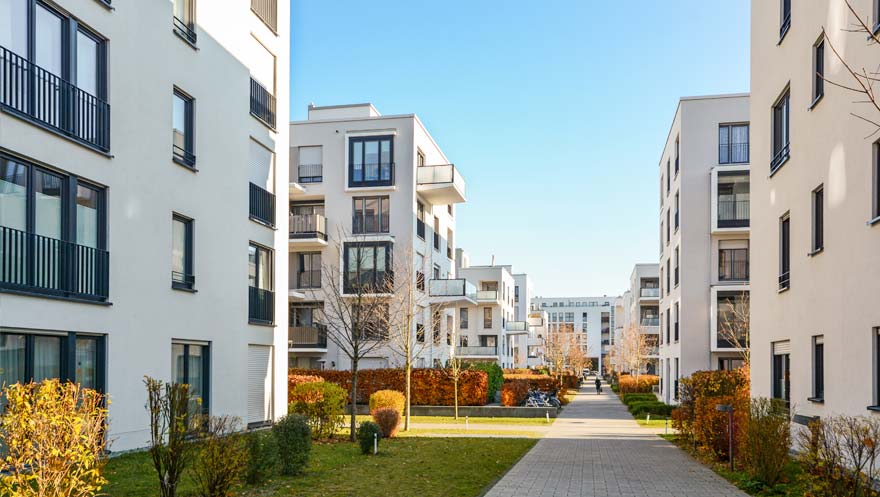The current commercial real estate, or CRE cycle started in 2009. The journey to recovery from the housing crisis has been a long one, and seems never-ending. Eleven years later, it’s hard to say when the downturn will come. What we do know for sure is that this expansion can’t last forever, making risk management an important consideration.
What does an extended CRE cycle mean for owners and investors looking to reduce risk? Here are some approaches to consider:
- Lending over Ownership
- Small Lending over Big Lending
- Short Game over Long Game
- Complexity over Simplicity
- Advice for Owners
- Get Experience in Your Corner
Join PRC as we expand on these approaches to risk management in an extended commercial real estate cycle. PRC has over 18 years of expert advisory in commercial real estate financing and investment opportunities for investors.

1. Lending over Ownership
When it’s hard to know what’s up ahead, many CRE investors turn to something tried and true. In this case, mortgage asset portfolios for multifamily housing properties fit the need. Thanks to long-term leases, floating rates, downside caps, and tangible properties, these investments tend to at least maintain invested capital even if property values fall.
This doesn’t mean an investor is completely immune from risk, of course. Property owners can still default. However, with the right structuring and conservative underwriting, an asset manager can choose to work to restabilize or foreclose. This means that invested capital can be recovered. Investment managers like Pioneer Realty Capital are a better source for this flexibility than banks, and have a wide range of financing and investing options such as crowdfunding.
2. Small Lending over Big Lending
Since 2010, there has been a decline in the presence of traditional banks from the real estate and business credit industries. As a result, Prequin predicts that the alternative assets industry is set to hit $14 Trillion by 2022.
Commercial real estate developers have increasingly accepted loans by asset managers in the last decade. Understandably, this means larger deals generate a lot of competition among larger asset managers. By contrast, smaller properties such as those under $50 million wind up underserved. This creates more flexible borrowers who may be willing to agree to terms which protect the lender in a downturn. This works out well for risk-averse CRE investors.

3. Short Game over Long Game
This is probably the most obvious advice; after all, we don’t expect to have a much longer game! What investors need to know, of course, is how to effectively play the short game.
Traditional banks often offer loans with 7- or 10-year terms, which just won’t work in our current position in the cycle. However, a number of short-term loans packaged together in a fund can create a sizable portfolio. Done right, with short-term loans redeploying upon maturity, this effectively creates liquidity out of what is normally an illiquid asset. It can also be set up in such a way that some loans mature every month.
4. Complexity over Simplicity
We’ve all heard the advice to “keep it simple,” but in the case of CRE it may not apply. We know that portfolio diversity is important. Now, some professionals say complexity is the key to a smart capital stack, at least in the case of construction loans.
Yes, construction loans are inherently riskier, especially recently due to high construction costs. However, economic indicators point to construction lending as a viable move for the near future. The Federal Reserve issued three rate cuts in 2019 without lowering caps and the US has an aging population which tends to mean more savers, keeping interest rates low.
So, how do we all reduce risks and take advantage of low interest rates in this extended cycle? While many CRE construction projects are financed within a strict equity-to-debt framework, increasing complexity might look like changing that framework to include equity, debt, and other funding such as federal programs or crowdfunding.
This strategy is best executed, of course, with an experienced financial and investment advisor who can ensure that complexity works in an investor’s favor. Call 877-350-9416 to start the conversation.

5. Advice for Owners
If you’re set on owning rather than lending, all hope is not lost. One thing prospective owners can do to manage late-stage cycle risk is bring a systematic approach to site selection. Building from the ground-up is currently riskier than investing in recently renovated or remodeled properties, for example. With the recent rise in demand for co-working spaces, industrial warehouses, and logistics centers, many traditional retail stores stand ripe for repurposing.
Of course, as with any purchase, it’s important to do one’s homework. Know zoning laws and whether a property’s structure is appropriate for its intended use. Consider location and transportation options available to people who will occupy the building. You can also reduce risk with independent cost and contractor evaluations, progress inspections, and smart funding terms.
By working with an advisor to secure financing that satisfies the complexity recommendations above, both owner, investor and lender can come out on top in a construction loan agreement.

What is the best financing or refinancing for your commercial real estate? Whether Borrowing, Investing or Owning, Get Experience in Your Corner.
When considering late-cycle CRE investment, it’s important to have knowledgeable advisors on your side. Experienced professionals such as those at Pioneer Realty Capital offer advisory, crowdfunding, and a network of over 790 capital partners to create creative, cost effective solutions. To find answers to your CRE investment or financing questions, reach out today.













Get Social